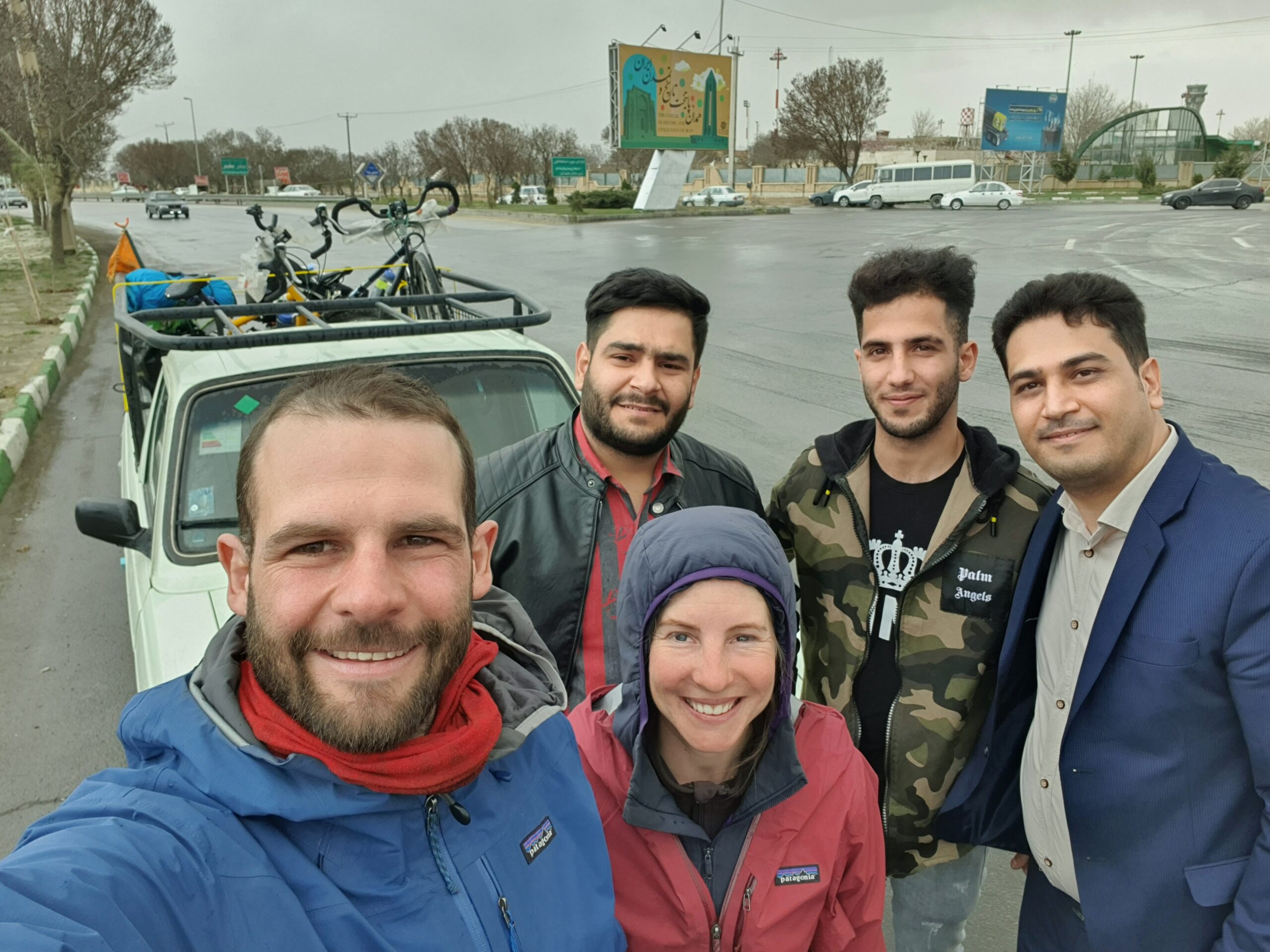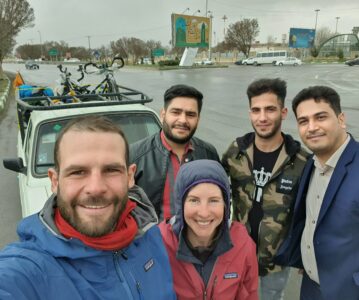These first days of driving in Iran are tough. It remains cold, the wind also gives us a hard time and gradually our supply of stamina is exhausted. We think back and calculate: Last November it started to get really cold. November, December, January, February, mid-March… that’s a whole 4 ½ months of cold feet, cold hands, shivering evenings and wrapped up thick in our sleeping bags. We long for warmth, sandals, single layer tenues, riding without gloves, cozy sitting outside and green leaves on the trees.
Instead, we fight the icy headwind, have our buffs pulled over our necks and the back of our heads, and continue to have to blow out our noses every few minutes as the wind keeps them running steadily.
Without a doubt, spring begins to stretch out its arms more and more clearly the longer and further south we go. A green fluff is visible on the vast fields, the buds on the trees are getting thicker and the first flowers here and there make our hopes grow.
The road to Hamedan tests our will once again. After forty kilometers we reach a remote settlement, are greeted joyfully by the villagers, photographed and questioned and then realize that the road from here on is absolutely impassable. A few meters of driving are enough for our tires and mudguards to be stuck together with tough mud. The village is too small to hope for a ride for the critical five kilometers. We have to turn around and destroy almost the whole day’s distance again. The frustration is great and the joy all the greater when we can stop a pickup truck at least for the return trip. The family drops us off somewhere in no man’s land and shows us the direction to Hamedan. We let our maps calculate and find out: The distance has actually remained the same, but at least tarred underground now awaits us again. Towards evening, the environment has smoothed out and huge fields spread out on both sides of the road. The wind blows, we pedal and ask ourselves where we should find a protected place for the night in this agricultural plain without trees, houses or other unevenness. Then Ali Reza rattles towards us on his motorcycle. “Where are you going?” he asks in amazement. We communicate in pantomime our search for a campsite for the night and already he offers us to join him. He points to a low pump house, which stands a bit away from the main road in the middle of the fields. Of course we spotted it from far away and considered it as a possibility. However, the building looked inhabited from a distance. At the latest when Ali shows us pictures of his family on his phone, we decide to trust him and accept the offer. Ali supervises the irrigation system for the potato fields here and shows us the water basin into which groundwater is pumped up from a depth of over 220 meters. We marvel and wonder. All the water that is pumped to the surface here and in many places in this world against to create conditions for agriculture in an actually dry environment… Is this sustainable? What if the underground reservoir is pumped dry? Where does the wind carry the moisture that evaporates here?
We don’t ask such complicated questions, but enjoy Ali’s relaxed hospitality and are happy to be allowed to spend the night in a wind-protected room.
The next day brings more wind exactly from the direction we want. We throw ourselves into the gusts, hardly get off the spot and watch the clouds getting darker.
The decision to hitchhike the remaining kilometers to Hamedan is easy: Why spend a day fighting the wind and rain on a less attractive route when we can use the time to tour an exciting city? Soon, we continue at speed 70 and make it to the next town in no time. Here we load our bikes off the back of the truck and soon find ourselves surrounded by curious people. “Where are you from? How do you find Iran? Where do you want to go? Why are you riding bicycles? Can we take a picture?” We do our best to answer the questions honestly and we are also happy to take photos. Even though we always hear the same questions: The vast majority of Iranians are not lucky enough to be able to travel. The weak passport and the catastrophic exchange rate make such dreams impossible. We travel here through their country, enjoying their hospitality, architecture, nature and infrastructure. We believe that it is the good right of every Iranian to approach us and “claim” our time.
We can’t offer anything material but we can share our time, photos and experiences, adding a colorful, exotic splash of color to the day. Selfies with us are regularly shared on our respective Instagram profiles, family members are spontaneously video called to introduce the foreign guests, and far too often we are gifted with fruits and other natural gifts.
A group selfie later and richer by a mix of nuts and oranges, we soon found our next ride. We cannot dissuade the three highly motivated men from sacrificing their time for us and driving us in two (!) vehicles almost to Hamedan. Muhammed quickly calls his wife to inform her about the spontaneous joyride and forty kilometers later we are gratefully standing at the gates of the city. “Interlaken!”, we think as we admire the imposing mountain scenery around Hamedan. “Europe!” we marvel as we cross the car-free city center. The city center is arranged in a circle and we like it very much. After unsuccessfully searching for a hostel, we are about to drive out of town to set up our tent, when young Shakiba joyfully waves at us from a car. We stop for a little chat and are soon surrounded by interested Hamedans. It soon becomes clear: Shakiba and her parents will take us home and our overnight problem is solved.
We are warmly welcomed and are astonished when we realize that today four generations are coming together. Here, all family members except the 95-year-old great-grandmother speak a few words of English and whenever communication falters, 10-year-old Shakiba or Uncle Martin, who lives in Australia but is also visiting the family, translate. This family is very different from the Iranians we have met so far. The richly decorated armchairs and the noble wallpaper give the living room a noble atmosphere. They still eat on the sofra on the floor, but they drink their tea sitting down! Part of the family is at home in Tehran and is here for the Nowruz celebrations. Shakiba is studying English with a private tutor and her mother works in a human rights NGO. On the lower floor of the house is the bicycle repair shop of the lively grandfather, who says mischievously, “I had to learn some English in school. Now I can finally use it!”
We are not persuaded to stay longer and the next afternoon, after a stroll through town, we pack our seven things to camp somewhere outside. Hamedan even appears beautiful to us as we drive out: Soon we are cruising through ever greener outer quarters, past blossoming almond trees and flocks of sheep. The next morning we are amazed when we wake up (for the last time!) in a snowy landscape. The nightly snow melts soon and we fight against the wind towards warmer weather.


